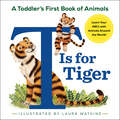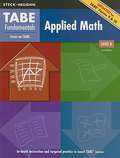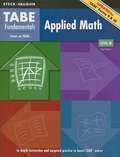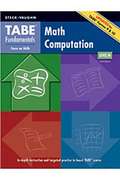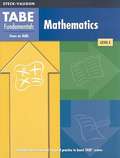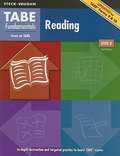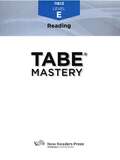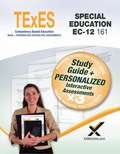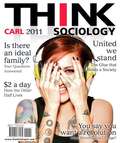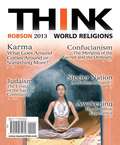- Table View
- List View
T Is for Tiger: A Toddler's First Book of Animals
by Laura WatkinsFrom alligator to zebra—wild animals make learning the alphabet come alive for kids ages 2 to 4What could be more fun than learning about the alphabet and all sorts of amazing animals at the same time? T Is for Tiger goes beyond other animal books for toddlers and introduces your little one to letters in an simple and fascinating format with colorful illustrations and plenty of critters they'll never forget.Everything animal books for toddlers should be:A worldwide adventure—Discover animals for every letter of the alphabet—even Q and X—as they appear in their natural environments.Engaging and educational—Unlike other animal books for toddlers, T Is for Tiger features realistic illustrations that help your toddler recognize animals and their homes.Go beyond the ABCs—You won't need other animal books for toddlers—revisit the pages and continue the learning as your child grows with animal fun facts, a world map, and more.Teach your little one about letters and animals all at once—from A is for alligator to Z is for zebra. When it comes to animal books for toddlers, this one roars with fun.
T.s. Eliot Four Quartets
by Daniel O’connorIt is indeed a matter for gratification that the Second Edition of this book was so well received by the student community necessitating the bringing out of the Third Edition. Once again the demand for the Third Edition of this book within a remarkably short period is a sufficient proof that it has proved more useful to the students than many other books on the subject already available in the market.
TABE Fundamentals: Applied Math, Level D (2nd edition)
by Steck-VaughnThe Tests of Adult Basic Education are designed to meet the needs of adult learners in ABE programs.
TABE Fundamentals: Applied Math, Level M (2nd edition)
by Steck-VaughnThe Tests of Adult Basic Education are designed to meet the needs of adult learners in ABE programs. Written and designed to be relevant to adult learners' lives and interests, this material focuses on the life, job, academic, and problem-solving skills that the typical adult needs. Because of the increasing importance of thinking skills in any curriculum, TABE Fundamentals focuses on critical thinking throughout each TABE Objective.
TABE Fundamentals: Math Computation, Level D (2nd edition)
by Steck-VaughnCongratulations on your decision to study for the TABE! You are taking an important step in your educational career. This book will help you do your best on the TABE. You'll also find hints and strategies that will help you prepare for test day. Practice these skills--your success lies in your hands.
TABE Fundamentals: Math Computation, Level M (2nd edition)
by Steck-VaughnThe Tests of Adult Basic Education are designed to meet the needs of adult learners in ABE programs. Written and designed to be relevant to adult learners' lives and interests, this material focuses on the life, job, academic, and problem-solving skills that the typical adult needs.
TABE Fundamentals: Mathematics, Level E
by Steck-VaughnThe seven Test of Adult Basic Education in Reading, Mathematics Computation, Applied Mathematics, Language, Vocabulary, Language Mechanics, and Spelling are designed to meet the needs of adult learners in ABE programs. Written and designed to be relevant to adult learners' lives and interests, this material focuses on the problem-solving skills that are typical of adult need. Because of the increasing importance of thinking skills in any curriculum, TABE Fundamentals focuses on critical thinking throughout the material presented for each TABE Objective.
TABE Fundamentals: Reading, Level D (2nd edition)
by Steck-VaughnThis book will help you do your best on the TABE. You'll also find hints and strategies that will help you prepare for test day. Practice these skills--your success lies in your hands.
TAKS Performance System Practice Book (Grade #5)
by Scott ForesmanThis Practice Book for Grade 5 contains Reading Selections, Writing Prompts and Revising and Editing Selections.
TEKS World History: A Social Studies Learning System
by Jackson J. SpielvogelFrom the dawn of civilization to the modern dilemmas of nation building, this book takes a fascinating look at the common challenges and experiences that unite the human past and inform the future. The book uses colorful visuals, maps, and dramatic first-hand historical accounts to give readers a powerful perspective on the human experience over time. The easy-to-read narratives and cultures from all time periods, to help readers understand the course of world history and make connections across chapters.
TEMAS: AP Spanish Language And Culture
by Parthena Draggett Cole Conlin Max EhrsamNIMAC-sourced textbook
TEXAS My World Social Studies: Building Our Communities
by Pearson Education StaffThird Grade Social Studies textbook
TExES Special Education EC-12 161: Teacher Certification
by Sharon A. WynneAre you ready to become a special education teacher in Texas? Use XAMonline’s TExES Special Education EC-12 study guide to help you pass your teacher certification exam and advance your career. <p><p> Aligned with current TExES standards, our study guide provides a comprehensive review of all nine domains, including:<p> Legal Mandates and Historical Aspects<br> Identification Characteristics<br> Processing Skills<br> Assessment Methods, Use, and interpretation<br> Classroom Management<br> Teaching Strategies<br> Curriculum and Instructional Content<br> Instructional Materials and Technology, and<br> Support and Professionals<br> <p> We give you a thorough review of all domains, competencies, skills, and focus statements tested on the TExES Special Education EC-12 (161) exam. Unlike other teacher certification test preparation material, our TExES Special Education EC-12 study guide drills all the way down to the focus statement level, providing detailed examples of the range, type, and level of content that appear on the test. <p> The book includes three full-length multiple-choice practice tests to help you test your knowledge, understand how the exam is weighted, and identify skills and competencies you need to focus on. Our detailed answer explanations reference related skills in the book, allowing you to identify your strengths and weaknesses and interact with the content effectively. Maximize your study by prioritizing domains and skills you need to focus on the most to pass the exam. <p> This study guide is perfect for college students, teachers, and career-changing professionals who want to become a special education teacher in Texas.
THINK Marriages and Families (2nd Edition)
by Jenifer KunzThis student-friendly text delivers the core concepts of Marriages and Families in a way they can easily understand.
THINK Sociology
by John D. CarlWith an engaging visual design, 15 page chapters, and readings from popular trade titles, THINK Sociology is the introductory Sociology text your students will read. THINK Sociology is informed with the latest research and the most contemporary examples, allowing you to bring current events directly into your classroom with little additional work. An engaging visual design developed with the benefit of extensive student feedback will appeal to your students and deliver the core concepts of Sociology in a way that they can actually understand.
THINK World Religions
by Roy R. RobsonTHINK World Religions is informed with the latest research and the most contemporary examples, allowing you to bring current events directly into your classroom with little additional work. An engaging visual design developed through extensive student feedback will appeal to your students and deliver the core concepts of World Religions in a way that they can actually understand. In addition, a groundbreaking instructor supplements package will help you bring the core concepts of World Religions to life without burdening your students with heavy, too dense or too expensive learning solutions. The teaching and learning experience with this program helps to Improve Critical Thinking, Engage Students, and Support Instructors.
TNPSC Combined Group IV and VAO Competitive Exam Part 4 Tamil Nadu History, Tradition, Culture and Thirukkural: TNPSC ஒருங்கிணைக்கப்பட்ட GROUP - IV தேர்வு பகுதி – IV தமிழ்நாட்டின் வரலாறு, மரபு, பண்பாடு மற்றும் திருக்குறள், தமிழகத்தில் வளர்ச்சி நிர்வாகம், மற்றும் சமீபத்திய செய்திகள்
by V V K Subburasuஇந்த புத்தகம் வீ.வீ.கே. சுப்புராசு அவர்களால் எழுதப்பட்டு சுரா பதிப்பகத்தால் வெளியிடப்பட்டுள்ளது. இப்புத்தகத்தில் ஒருங்கிணைந்த குடிமைப் பணிகள் தேர்வு 4 மற்றும் கிராம நிர்வாக அலுவலர் பணிகளுக்கான தமிழ்நாட்டின் வரலாறு, மரபு, பண்பாடு, திருக்குறள், தமிழகத்தில் வளர்ச்சி நிர்வாகம், மற்றும் சமீபத்திய செய்திகள் பாடங்களை நன்கு படித்து அறிந்து கொள்ளலாம் மேலும் முந்தைய டிஎன்பிஎஸ்சி தேர்வில் கேட்கப்பட்ட வினாக்களுக்கான விடைகள் கொடுக்கப்பட்டுள்ளது
